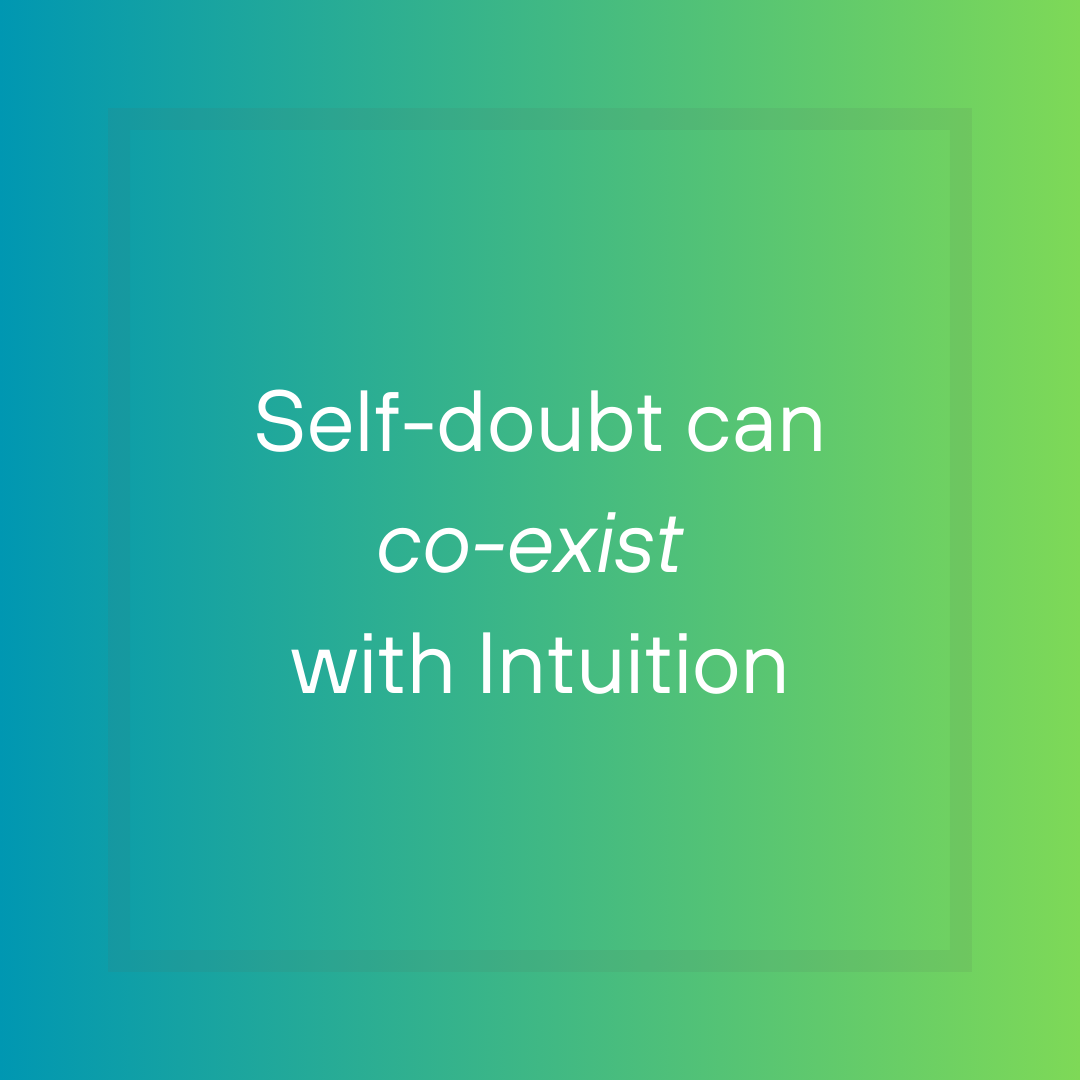Balancing self-doubt and intuition
Self-doubt and intuition are two forces that shape the way we make decisions, move through life, and pursue our dreams. At first glance, they may seem like opposites—self-doubt being the voice that holds us back, while intuition guides us forward. Instead, think of these two internal forces as intertwined, often working together.
Understanding Self-Doubt
Self-doubt is that inner voice that questions our capabilities, skills, and decisions. It can be rooted in fear, past experiences, or someone else’s expectations. It is a natural human response designed to protect us from failure and uncertainty.
When doubt becomes our default reaction, it can become overpowering, stifling creativity and holding us back from pursuing opportunities that align with our true desires.
The Role of Intuition
Intuition, on the other hand, is a quiet but powerful sense of knowing. It’s often described as a gut feeling or an inner nudge that directs us toward what feels right. Intuition operates on a deeper level, processing subconscious information and aligning our actions with our values and goals. It’s our mind’s ability to synthesize complex information into a clear signal.
The Connection Between Self-Doubt and Intuition
The relationship between self-doubt and intuition is complex. Self-doubt can often surface when we’re about to take a step that feels intuitively right but comes with uncertainty or risks. This is where the two forces intersect: self-doubt arises as a challenge to intuition, asking us to pause and evaluate our next move carefully.
Instead of viewing self-doubt as an obstacle, we can reframe it as a moment of reflection. Is this doubt coming from a genuine concern, or is it simply fear in disguise? By tuning in to our intuition, we can discern whether the self-doubt is something to address or ignore.
Here are some strategies to help navigate the intersection between self-doubt and intuition:
Acknowledge your self-doubt. Recognize when self-doubt shows up and give it space. Instead of pushing it away or letting it overwhelm you, treat it as an invitation to reflect. Ask yourself: “Is this doubt trying to protect me from something real, or is it an unfounded fear?”
Foster your intuitive voice. Developing your intuition takes practice. Start by paying attention to your gut feelings, especially when making smaller decisions. The more you listen to that inner voice, the stronger it becomes.
Create time for reflection Take time to sit with both your self-doubt and intuition. Journaling, meditation, or quiet walks can help you sift through your thoughts and emotions, allowing you to gain clarity on which voice to trust.
Learn to live with uncertainty. Self-doubt and intuition can coexist. Uncertainty is part of growth. Often, the most significant transformations happen when you step into the unknown, guided by intuition but aware of the doubts you need to overcome.
Self-doubt does not have to be the enemy of intuition. It’s when we honor both voices that we gain wisdom, grow as an individual, and gain the ability to make decisions that align with our authentic selves.

